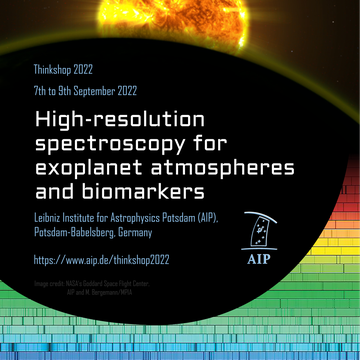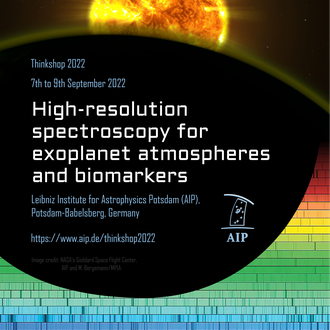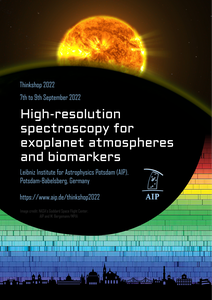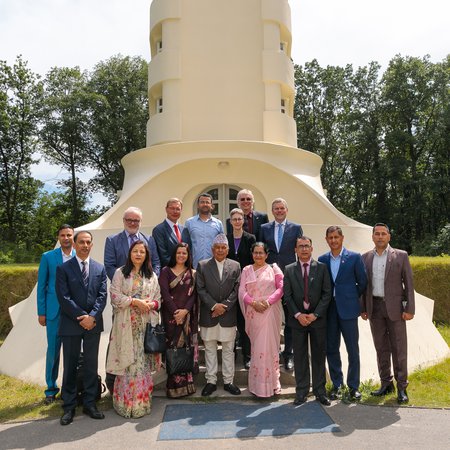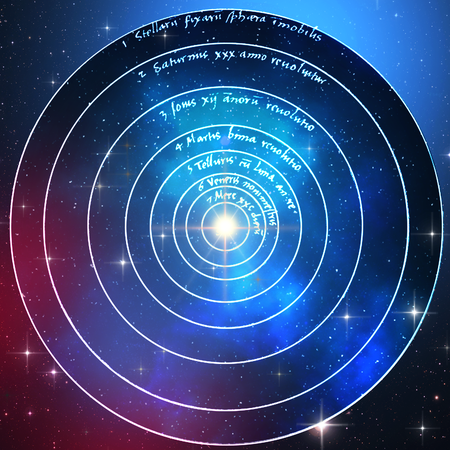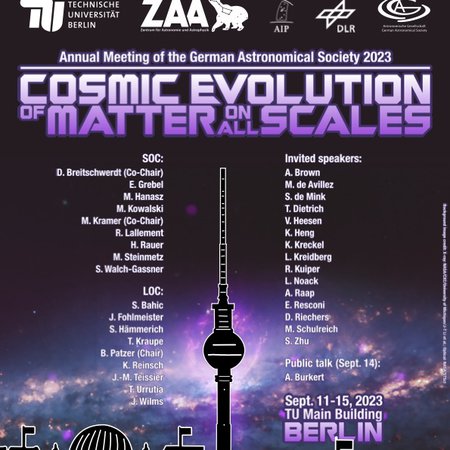17th AIP Thinkshop: High-resolution spectroscopy for exoplanet atmospheres and biomarkers
From 7 to 9 September, 60 scientists come to Potsdam Babelsberg to discuss exoplanet atmospheres, and their observations with high spectral resolution, in the Thinkshop conference series of the Leibniz Institute for Astrophysics Potsdam (AIP). The participants will address the latest techniques for observations, their analyses, and next-generation instruments.
One of the most rapidly developing research fields in modern astronomy is the study of planets around other stars. “Now is an extremely interesting time for exoplanet atmospheres: astronomy is developing new techniques to measure which elements and molecules make up the air of other worlds. At the same time, new instruments for the world's largest telescopes are being designed that will allow us to look at small exoplanets that are similar to our own Earth,” says Professor Katja Poppenhäger, head of the Stellar Physics and Exoplanets section at AIP and organizer of the conference. Dr Engin Keles, co-organizer and postdoc in the Stellar Physics and Exoplanets section, adds: “The search for a second Earth is the impetus for the exploration of extrasolar planets, and apart from the laws of physics, it seems that imagination is the only limit in achieving this goal.”
The focus topics for the workshop will be observation, analysis and modelling of high-resolution exoplanet spectra, scientific insights from combinations of different data types, the detectability of biomarkers, and future instrumentation, such as the high-resolution spectrograph ANDES for the Extremely Large Telescope (ELT), which is currently under construction. The AIP is a member of the ELT-ANDES consortium. The hybrid conference has 90 participants, of which 60 are attending in person.
Each year, the event series of the AIP focuses on a different field of astrophysical research. The study of exoplanet atmospheres is one of the research interests pursued at AIP in the Stellar Physics and Exoplanets section, which was founded with the appointment of Katja Poppenhaeger as new section head and joint professor with the University of Potsdam in 2018.
From 7 to 9 September, 60 scientists come to Potsdam Babelsberg to discuss exoplanet atmospheres, and their observations with high spectral resolution, in the Thinkshop conference series of the Leibniz Institute for Astrophysics Potsdam (AIP). The participants will address the latest techniques for observations, their analyses, and next-generation instruments.
One of the most rapidly developing research fields in modern astronomy is the study of planets around other stars. “Now is an extremely interesting time for exoplanet atmospheres: astronomy is developing new techniques to measure which elements and molecules make up the air of other worlds. At the same time, new instruments for the world's largest telescopes are being designed that will allow us to look at small exoplanets that are similar to our own Earth,” says Professor Katja Poppenhäger, head of the Stellar Physics and Exoplanets section at AIP and organizer of the conference. Dr Engin Keles, co-organizer and postdoc in the Stellar Physics and Exoplanets section, adds: “The search for a second Earth is the impetus for the exploration of extrasolar planets, and apart from the laws of physics, it seems that imagination is the only limit in achieving this goal.”
The focus topics for the workshop will be observation, analysis and modelling of high-resolution exoplanet spectra, scientific insights from combinations of different data types, the detectability of biomarkers, and future instrumentation, such as the high-resolution spectrograph ANDES for the Extremely Large Telescope (ELT), which is currently under construction. The AIP is a member of the ELT-ANDES consortium. The hybrid conference has 90 participants, of which 60 are attending in person.
Each year, the event series of the AIP focuses on a different field of astrophysical research. The study of exoplanet atmospheres is one of the research interests pursued at AIP in the Stellar Physics and Exoplanets section, which was founded with the appointment of Katja Poppenhaeger as new section head and joint professor with the University of Potsdam in 2018.
Images
Poster for the 17th AIP Thinkshop.
Big screen size [1000 x 1413, 1.0 MB]
Original size [1241 x 1754, 1.3 MB]
